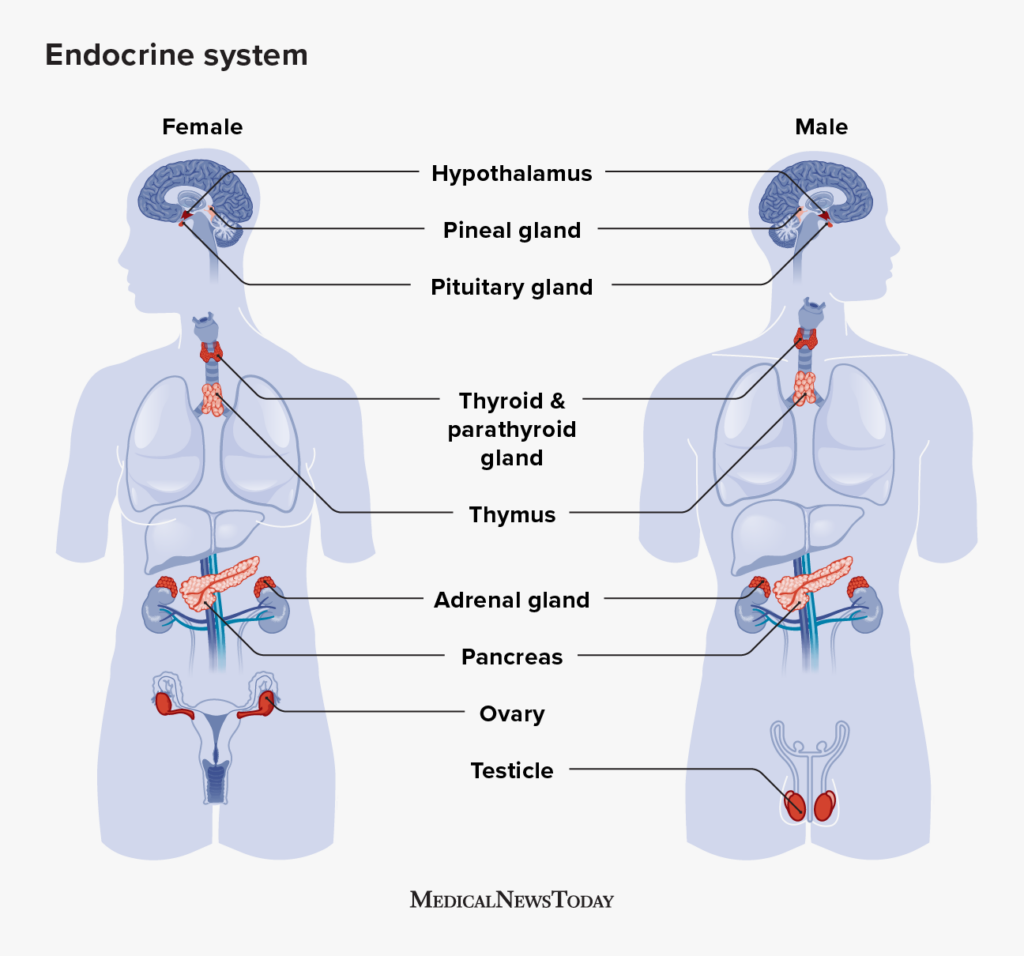The Scientific Research Behind Hormonal Agent Policy: Insights From an Endocrinologist
The Scientific Research Behind Hormonal Agent Guideline: Insights From an Endocrinologist provides a detailed expedition of the elaborate processes involved in hormonal agent law. Whether you are a clinical expert seeking a deeper understanding of endocrine feature or a specific interested in finding out regarding the science behind hormone regulation, this book is an invaluable source.
Hormonal Agents and Their Features
Hormones play vital duties in the guideline and sychronisation of different physiological procedures within the body. These chemical carriers are created by endocrine glands and are released into the blood stream, where they travel to target cells or organs to exert their effects. The functions of hormonal agents are diverse and encompass almost every facet of human physiology.
Among the main functions of hormonal agents is to keep homeostasis, which is the steady internal setting needed for the body to function ideally. Insulin, a hormone generated by the pancreas, manages blood glucose degrees by advertising the uptake and storage of sugar in cells. Another hormonal agent, cortisol, helps the body react to stress by boosting blood sugar degrees and suppressing the immune system.
Hormonal agents also play vital roles in growth and growth. Growth hormone, created by the pituitary gland, stimulates the growth of bones and cells, while thyroid hormones control metabolic rate and influence the advancement of the worried system - Endocrinologist. Furthermore, reproductive hormonal agents, such as estrogen and testosterone, are liable for the development and maintenance of additional sex-related features and the law of the menstrual cycle
The Endocrine System: An Overview
Playing an important duty in the policy and coordination of physiological processes, the endocrine system is a complicated network of glands that create and launch hormonal agents right into the blood stream. These glands, consisting of the hypothalamus, pituitary gland, thyroid gland, adrenal glands, pancreatic, ovaries, and testes, produce hormonal agents that work as chemical carriers, affecting numerous physical features. The endocrine system functions in combination with the worried system to keep and regulate homeostasis, making certain that the body's inner setting stays steady.
It creates hormones that boost or prevent the release of hormonal agents from the pituitary gland, which in turn manages the activity of various other endocrine glands. The thyroid gland, situated in the neck, produces hormonal agents that control metabolism and power balance.

Policy of Hormone Production
The regulation of hormonal agent manufacturing includes a complex interaction in between various glands and feedback devices within the endocrine system. Hormones are chemical messengers that play a crucial duty in preserving homeostasis and coordinating numerous physical processes in the body. The manufacturing of hormones is tightly regulated to make sure the proper performance of the endocrine system.
The hypothalamus, located in the mind, acts as a key regulatory authority of hormone manufacturing. It releases hormonal agents that promote or inhibit the manufacturing of hormonal agents by the pituitary gland, which is frequently described as the "master gland" of the endocrine system. The pituitary gland, consequently, generates hormones that act upon various target glands throughout the body, boosting them to create and release specific hormonal agents.
Feedback systems likewise play an essential role in hormone policy. When hormone degrees climb over or drop below the optimal range, the body sets off systems to either decline or rise hormonal agent manufacturing, specifically, to recover equilibrium.
Comments Loops in Hormone Policy
Comments loops play a vital function in the law of hormonal agent manufacturing. These loopholes include a series of interactions between the endocrine glands, hormones, and target organs to keep homeostasis in the body. There are 2 kinds of comments loops: unfavorable feedback and positive responses.
When hormone degrees rise over a certain limit, the hypothalamus in the brain signifies the pituitary gland to reduce hormonal agent manufacturing. Conversely, when hormonal agent levels go down below the limit, the hypothalamus promotes the pituitary gland to increase hormone production, bring back balance.
Favorable feedback loopholes, on the other hand, intensify hormone manufacturing. This occurs when a hormonal agent stimulates the launch of even more of the exact same hormonal agent, leading to a fast increase in its degrees. Favorable feedback loopholes are much less common in hormone guideline and are generally involved in certain physical procedures, such as childbirth and lactation.
Aspects Affecting Hormonal Agent Balance
Elements influencing hormonal agent equilibrium consist of dietary choices, way of life behaviors, and ecological exposures. These elements can have a continue reading this substantial influence on the delicate balance of hormones in the body, impacting different physical procedures and total wellness.
Dietary choices play a vital duty in hormonal agent law. Eating a well balanced diet regimen that consists of a selection of nutrients is essential for maintaining hormone balance. Certain nutrients, such as omega-3 fatty acids, vitamins, and minerals, are particularly important for optimal hormonal agent feature. On the various other hand, a diet regimen high in refined foods, fine-tuned sugars, and undesirable fats can interrupt hormone levels and lead to imbalances.
Lifestyle behaviors, such as workout, sleep patterns, and anxiety management, also affect hormonal agent pop over here balance. Regular exercise aids control hormone levels, advertises general well-being, and lowers the danger of hormonal problems. Appropriate rest is essential for hormonal agent production and regulation, as interfered with sleep patterns can lead to inequalities. Furthermore, persistent anxiety can dysregulate the hypothalamic-pituitary-adrenal (HPA) axis, an essential gamer in hormonal agent regulation, causing a cascade of hormone imbalances.

Conclusion
In verdict, recognizing the science behind hormonal agent regulation is essential for maintaining overall health and well-being. Hormones play essential roles in various bodily functions, and their production is managed by intricate responses loopholes.
The Scientific Read More Here Research Behind Hormonal Agent Guideline: Insights From an Endocrinologist provides a comprehensive expedition of the elaborate processes entailed in hormonal agent policy. It produces hormonal agents that promote or inhibit the launch of hormonal agents from the pituitary gland, which in turn manages the activity of various other endocrine glands. It releases hormonal agents that promote or inhibit the manufacturing of hormones by the pituitary gland, which is commonly referred to as the "master gland" of the endocrine system. The pituitary gland, in turn, creates hormonal agents that act on different target glands throughout the body, boosting them to create and launch particular hormonal agents.
When hormone degrees rise above a particular threshold, the hypothalamus in the mind signals the pituitary gland to reduce hormone production. (Endocrinologist in leander)